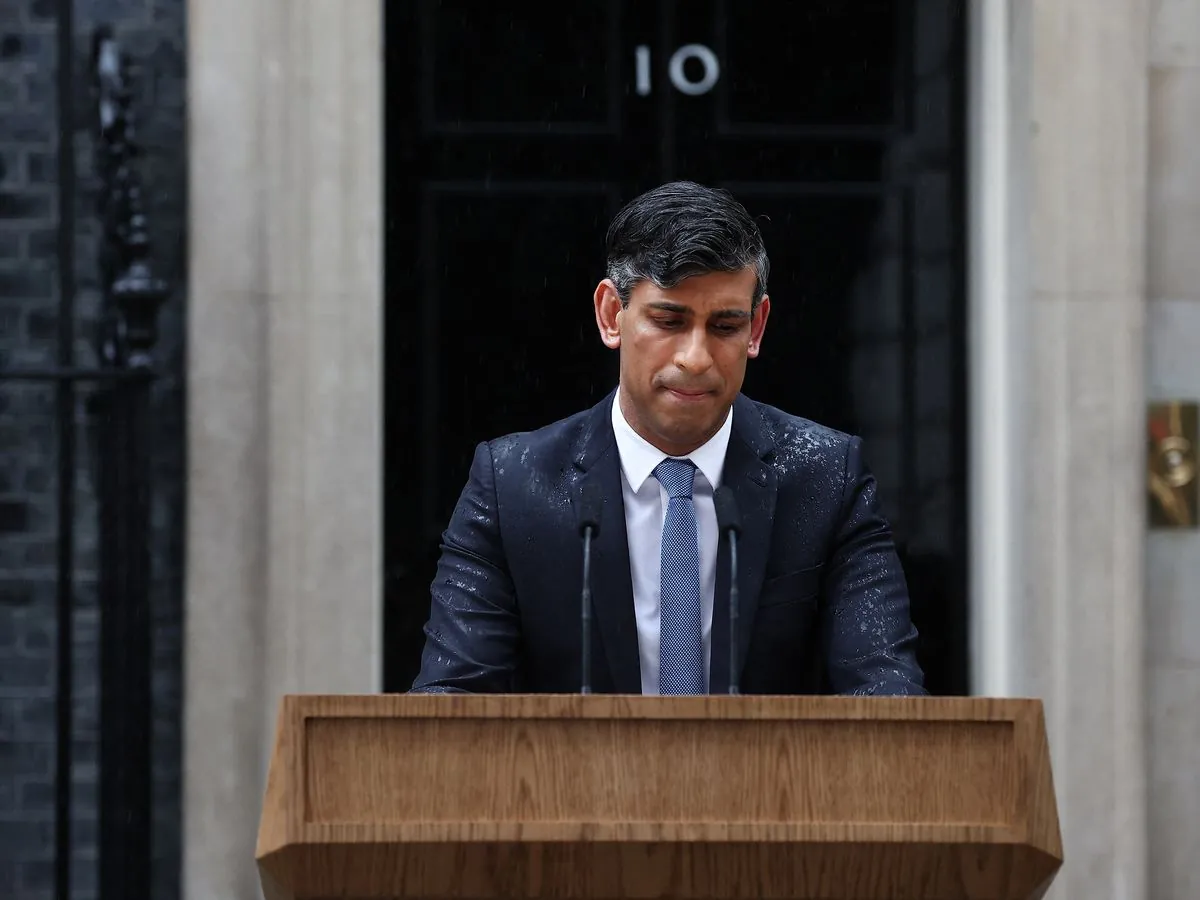Sunak's Gamble: The Early Election Call That Sealed Conservative Fate
Rishi Sunak's decision to call an early election in July 2024 proved controversial. Facing mounting challenges, the Prime Minister chose to forgo months of Conservative governance, a move criticized by party members in hindsight.

In a decision that would shape the political landscape of the United Kingdom, Rishi Sunak opted to call an early general election for July 4, 2024, instead of waiting until the latest possible date in January 2025. This choice, made amidst a challenging political climate for the Conservative Party, has been subject to intense scrutiny and debate.
The Conservatives, having been in power since 2010, faced an uphill battle in seeking a historic fifth term. The party had weathered significant turbulence, including three leadership changes in 2022 and the economic fallout from Liz Truss's brief tenure. Despite these challenges, Sunak's decision to forgo six months of governance has been viewed by many as a critical misstep.
Several factors influenced the early election call:
- Policy challenges: Concerns over the Rwanda deportation plan and potential prison overcrowding loomed large.
- Party management: MP defections and the threat of a leadership challenge worried party leadership.
- Economic uncertainties: Hopes for interest rate cuts and tax reductions were fading.
- Personal fatigue: Sources close to Sunak noted his growing weariness with the constant political pressure.

The decision-making process involved a small group of advisors, including Oliver Dowden, Liam Booth-Smith, James Forsyth, and Isaac Levido. While some, like Dowden, favored an early election, others, particularly Levido, expressed reservations.
"The position was entirely media management – something to say to endless 'When's the date?' reporter questions."
Notably, many architects of previous Conservative victories, including David Cameron, Sir Lynton Crosby, and George Osborne, reportedly disagreed with the July election timing. This divergence of opinion highlights the controversial nature of the decision.
The announcement itself became symbolic of the campaign's challenges. As Sunak delivered his speech outside 10 Downing Street, he was drenched by unexpected rain, creating an image that would come to define the campaign. The sound of Labour's 1997 election anthem, "Things Can Only Get Better," blaring in the background added to the inauspicious start.
In hindsight, many Conservative members have harshly criticized the decision. One ousted MP described Sunak's behavior as "punch-drunk," suggesting a leader reeling from constant political blows and making muddled decisions.
The early election call represents a significant gamble in British political history. It underscores the complexities of political decision-making and the high stakes involved in timing an election. As the dust settles, the Conservative Party is left to reflect on a choice that may have hastened its departure from power after 14 years at the helm.


































